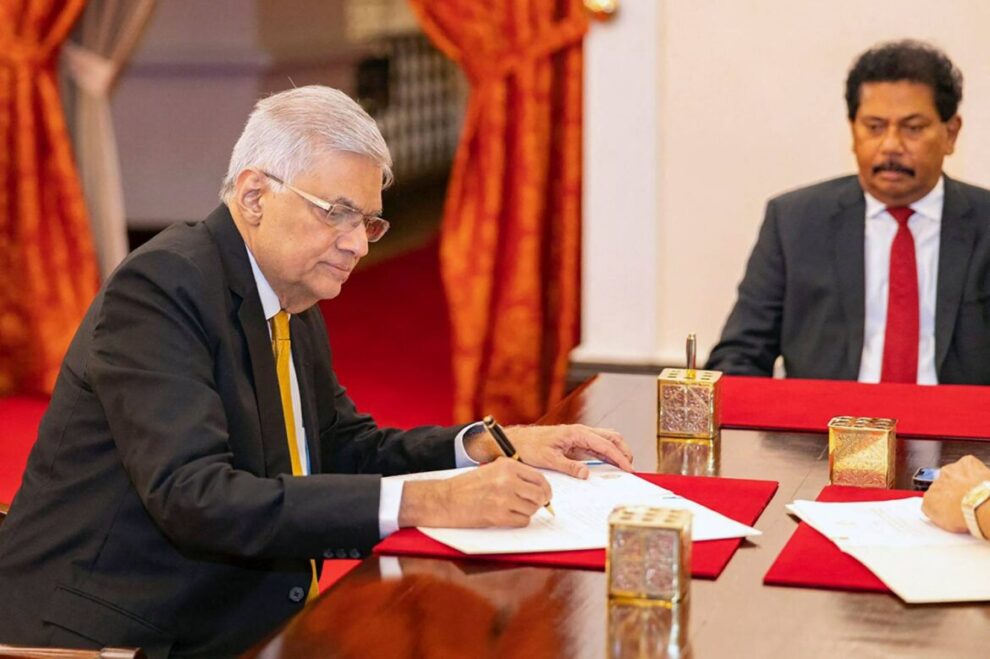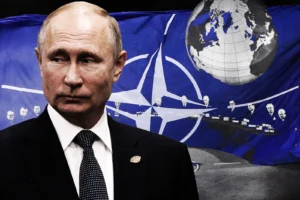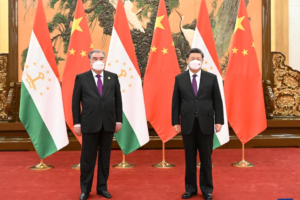Berlin (21/09 – 40)

His Excellency Ranil Wickremesinghe, President of Sri Lanka, spoke at the General Debate of the 78th Session of the General Assembly on 21 September 2023, reflecting on the theme of ‘Rebuilding trust and reigniting solidarity’ and its relevance to Sri Lanka’s recent challenges. President Wickremesinghe said that amidst multiple global crises in 2022, his country experienced its most challenging period in recent times. “Nevertheless, we succeeded in bringing about a democratic political transition, due to our deeply entrenched and resilient democratic traditions,” he added.
Turning to technological and scientific advances, he said they offer boundless new frontiers in knowledge and wealth generation. However, former big power rivalries and geopolitical tensions have reignited in open war. North-South divisions are widening with the digital divide, the financial and debt crisis, and the energy transition. “Contrary to the promise of 2030, today we are seeing levels of poverty and hunger not witnessed since decades,” he said. Neutral, nonaligned countries of the Global South such as Sri Lanka are once again constrained in between new global power configurations. Conflicts among big powers are adding uncertainty to economies, disrupting supply chains and causing inflation.

President Ranil Wickremesinghe addressed the UN General Assembly in New York on 21 September, reflected on how Sri Lanka faced significant social, economic and political challenges in the past year, including threats to democratic traditions but managed to achieve a democratic transition.
“Sri Lanka has not shirked its responsibility to the planet,” he added. Sri Lanka has pledged that by 2030 it will attain 70 per cent renewable energy in electricity generation and reduce greenhouse gas emissions by 14.5 per cent. “Our low carbon development trajectory gave us one of the lowest per capita carbon emission rates for a lower MIC [middle-income] country,” he added. But in 2023, because of exogenous shocks and debt, progress has been reversed. Food inflation put significant pressure on food security. Children’s education and nutrition have suffered. As a climate-vulnerable developing country in debt crisis, the urgency to mobilize climate finance is greater than it was ever before. Developed countries must do their part and assume their share of common but differentiated responsibilities.
The need for global solidarity to restructure the international financial architecture is also paramount, he said. Recent studies show that the impact of the pandemic on the United States economy from 2020 to 2024 would reach $14 trillion. These numbers would more than double if the rest of the global economy is added. “If we are unable to restructure the global fiscal order, then certainly we will fail in the struggle to reverse climate change and achieve the Sustaianble Development Goals,” he said. There is still time for course correction. Unfortunately, the Security Council has failed to give priority to these connected issues of climate change, debt relief and sustainable development. He called for the composition of the Council to be expanded and the role of the General Assembly to be strengthened.

He urged restraint in the increase of military expenditures which leads to escalation of conflict. “Developing countries have been the voice of sanity and reason in this regard,” he said. Moreover, he said, the war in Ukraine has had far-reaching and severe financial and humanitarian repercussions on food, hunger and debt in all parts of the world including Sri Lanka. “We need to halt the momentum where this and other big power tensions are spilling over into established areas of international rules-based cooperation,” he added.
Source: United Nations
















